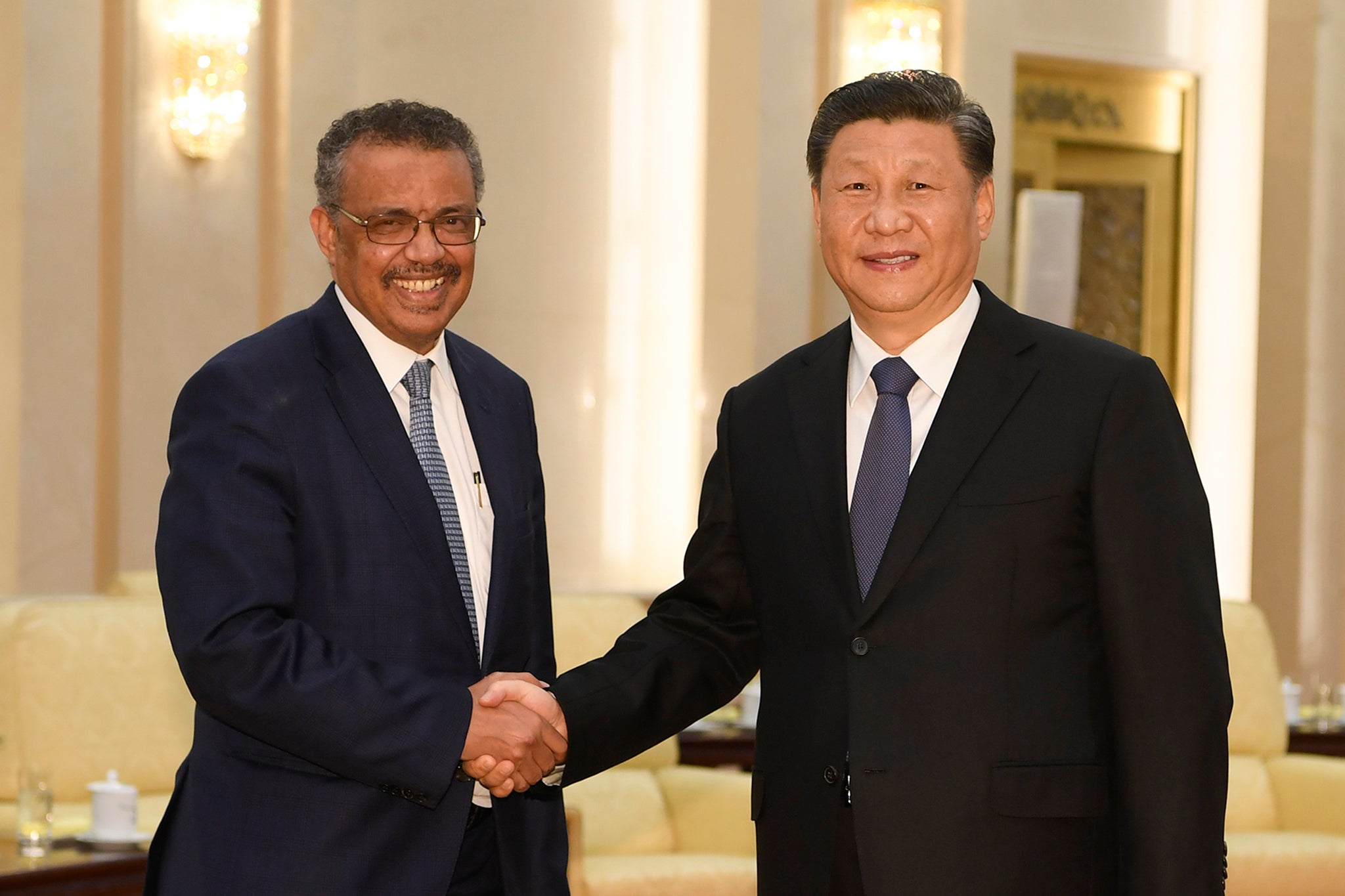Why Trump quit the World Health Organisation – and it’s vital for us all that he should stay
Trump is driven by memory, not by today’s reality. Nonetheless, the history of how China co-opted WHO to suppress Covid inquiries is shocking and has been underreported, as Michael Sheridan reveals...
That’s a big one,” said president Donald Trump as he signed the order to pull the United States out of the World Health Organisation, a move that would strip the WHO of its largest donor and deliver a blow to its global programmes.
But the reason for Trump’s act is also the reason why the US may end up staying in the organisation. And, with diplomatic firmness, there is a year to negotiate a good outcome.
For the 47th president, one motive is payback for the WHO’s conduct during the Covid pandemic in his first presidency, when he attacked it for being too close to China.
Trump tried to withdraw from the WHO in 2020. However, under US law, he had to give twelve month’s notice to the Geneva-based UN body and Joe Biden reversed the move on assuming the presidency in 2021.
The problem is that Trump is driven by memory, not by today’s reality. Nonetheless, the history is shocking and has been underreported. We all want to forget Covid but there is no chance of that in the White House. Facing the facts, therefore, is a first step.
When I wrote my biography of the Chinese leader Xi Jinping, I ended up devoting almost a whole chapter to how Xi turned the pandemic into what he himself described as “a decisive victory”.
This was the only time in writing about the “Red Emperor” that I was scared by what came to light. It was hiding in plain sight – the way that Xi co-opted the WHO to promote Chinese propaganda and to suppress inquiries into how the disease broke out.

In the early stage of the pandemic the WHO director general, Dr Tedros Adhanom Ghebreyesus, flew to Beijing to meet Xi on 28 January 2020.
With him was his powerful chief of staff, a German specialist in infectious diseases, Dr Bernhard Schwartländer, who had served as WHO representative in China and had earlier praised “the excellent leadership of the Chinese government” against the threat of global pandemics.
The two men returned to Geneva and assumed critical roles in what came next. In short, the WHO sent two expert missions to China with Xi’s agreement.
The first mission in 2020 praised Xi’s draconian “zero-Covid” crackdown as “perhaps the most ambitious, agile and aggressive disease containment effort in history”. Its findings were acclaimed by Chinese diplomats.
The second mission in 2021 was sent to find out how the disease started. It centred on the city of Wuhan, the epicentre of Covid, home to a laboratory that had worked on bat coronaviruses. Many US intelligence officials believed that a leak from the laboratory had caused the outbreak.
The WHO turned down three scientists nominated by the United States and instead sent a British-born scientist, Dr Peter Daszak, who had a long history of working with the Wuhan laboratory. Not surprisingly, the team ruled that a lab leak was “extremely unlikely”.
The result was a quiet diplomatic revolt in Geneva by the US and 13 other nations. Within days, the WHO chief, Dr Tedros, reversed policy and declared that “all hypotheses remain open”. That remains the WHO’s official position four years on.
Under pressure, Dr Tedros reshuffled his leadership team and finally began to call for China to cooperate in full, something Xi had no intention of doing.
One of those who moved out was the chief of staff, Dr Schwartländer, who left the WHO a few months later – and went to live in Beijing. There, astonishingly, he serves as the German government’s “global health envoy” and has appeared on propaganda outlets to speak of the “trust” between himself and the Chinese people.
Working with a Chinese researcher, Howard Zhang, I put a series of questions to the WHO and the German government. It took WHO almost two months to come up with a nine-page statement. It now admits that both missions were run under tight official control and never got all the data they needed.
Only a direct approach to the German foreign minister broke a stonewall about Dr Schwartländer. He himself was approached for comment but did not respond. My book containing the story was published last summer without challenge or complaint.
Under Biden, ties between the WHO and the US went into remission. In essence, the West had Dr Tedros in a box, Chinese influence receded and all sides were counting the days to the end of Dr Tedros’s second term in 2027.
That will no longer do. The minimum requirement for the United States and its allies in Geneva will be a clearout of the top ranks of WHO and the departure of Dr Tedros at the earliest opportunity under whatever dignified pretext is called for.
President Trump has already hinted he is open to a deal. If the US withdraws, it will be a win for China, which will seize the space. None of the democracies want that. Urgent surgery is required: they have twelve months to save the WHO.
Michael Sheridan, longtime foreign correspondent and diplomatic editor of The Independent, is the author of ‘The Red Emperor’ published by Headline Press at £25






Join our commenting forum
Join thought-provoking conversations, follow other Independent readers and see their replies
8Comments